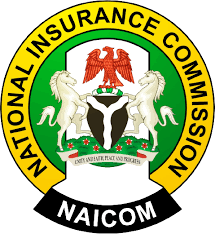By Nkechi Eze
The National Insurance Commission (NAICOM) has reaffirmed its determination to strengthen regulatory enforcement, improve claims settlement and rebuild public confidence in Nigeria’s insurance industry, stressing that the recently enacted Insurance Act has significantly enhanced its powers to hold operators accountable and curb sharp practices.
Speaking in a televised interview, the Deputy Commissioner for Insurance (Finance and Administration), Ekerete Ola Gam-Ikon, said the new legislation has “given NAICOM teeth to bite,” enabling the regulator to decisively sanction companies that fail in their obligations while also tackling fraudulent claims from policyholders. He explained that since assuming office last year, the current leadership of the Commission set out a clear agenda centred on restoring public confidence in insurance services by insisting on prompt payment of genuine claims.
“Our agenda was to rebuild public trust, and for you to rebuild public trust, the way to go for insurance is to pay your claims,” he said, recalling that the Commission had already declared zero tolerance for delays and in one instance intervened to take over a defaulting company that was unable to meet its obligations. According to him, the new Act reinforces this enforcement drive by empowering the regulator to act swiftly against erring operators.
Gam-Ikon also encouraged insurance companies to report suspected fraudulent claims by policyholders, assuring that NAICOM is ready to escalate such cases and raise public awareness on the risks that insurance fraud poses to the industry.
On recapitalisation, the Deputy Commissioner stressed that NAICOM would rigorously verify the availability and ownership of companies’ declared capital to ensure it can be converted into cash to settle claims. He pointed out that in the past some of the capital was tied up in assets still registered in the names of directors and shareholders. Under the new capital requirement, life insurance firms are expected to raise their capital from ₦2 billion to ₦10 billion, general insurance companies from ₦3 billion to ₦15 billion, and reinsurance companies from ₦10 billion to ₦35 billion. While acknowledging that Nigeria still lags global benchmarks, he said the risk-based capital framework will ensure operators only undertake business volumes that their capital can support. He noted that the recapitalisation exercise could lead to mergers and acquisitions, even among strong players as companies seek to expand capacity, but maintained that the protection of policyholders would remain the Commission’s top priority throughout such processes.
Gam-Ikon further highlighted the introduction of a Policyholders’ Protection Fund under the new Act, explaining that the fund, to be financed through contributions from insurers’ premiums, will provide relief to affected policyholders where an insurance company becomes too weak to meet its obligations. He noted that similar funds in other countries have boosted consumer confidence and led to higher insurance penetration, expressing optimism that Nigeria would experience a similar outcome.
On third-party motor insurance, he said the new law strengthens enforcement provisions, but emphasised that NAICOM had already commenced nationwide enforcement and sensitisation campaigns even before the new Act was passed. The Deputy Commissioner said the Commission has been educating motorists on the actual benefits of valid third-party cover, describing the mutual protection it provides as the essential principle of motor insurance. He added that insurance firms are now paying significant third-party claims, further demonstrating the value of the policy.
He noted that digitisation is making third-party insurance even easier to obtain and verify, with motorists now able to buy their policies online, download certificates on their mobile devices and present them to security agencies, while real-time verification through a centralised platform guarantees authenticity and convenience.
Gam-Ikon also pointed out that the new legislation creates room for the use of insurtech solutions to deliver affordable insurance products. He said some motorists can already purchase micro-motor insurance for as little as ₦500 and that similar technology can be leveraged to expand access to health, travel and goods-in-transit policies, all through mobile devices. According to him, NAICOM anticipated this shift and had issued operational guidelines for insurtech providers even before the Act was signed into law, establishing a regulatory framework that encourages innovation while protecting consumer interests.
He explained that the new Act consolidates multiple outdated insurance laws, including the Motor Insurance Act of 1945 and Marine Insurance provisions, into a modern framework designed to transform the industry. The reforms include stronger consumer protection, compulsory coverage requirements, improved financial soundness standards, prescribed timelines for claims settlement, process digitisation and expanded insurance scope in line with ECOWAS protocols. Gam-Ikon said all these measures have positioned the insurance industry to contribute meaningfully to the Federal Government’s goal of building a $1 trillion economy, adding, “This is the moment when the insurance industry begins to make a significant impact.”
















